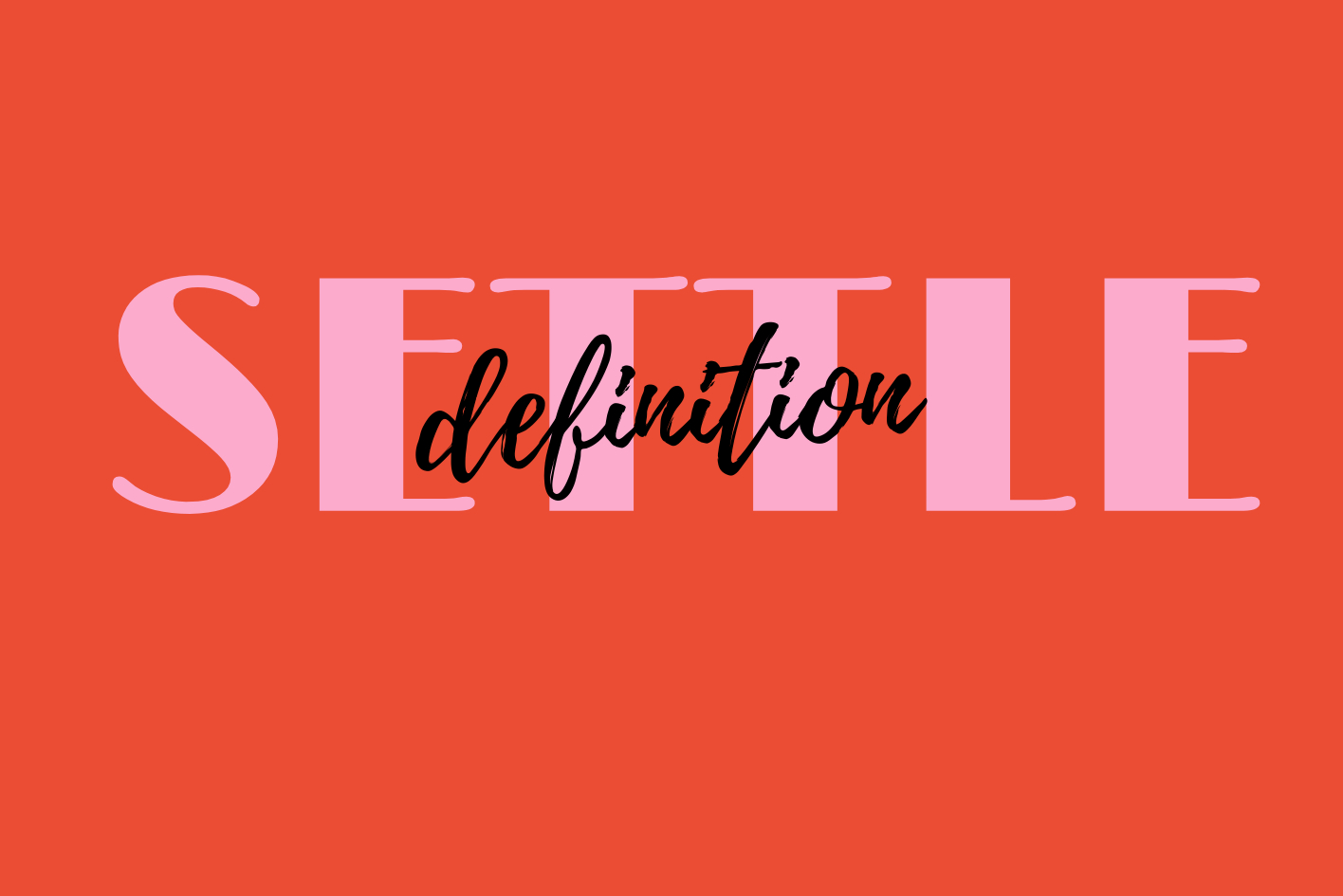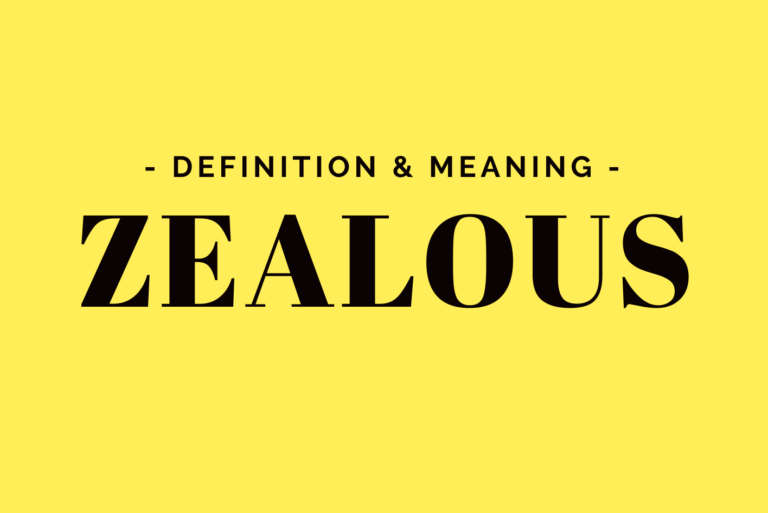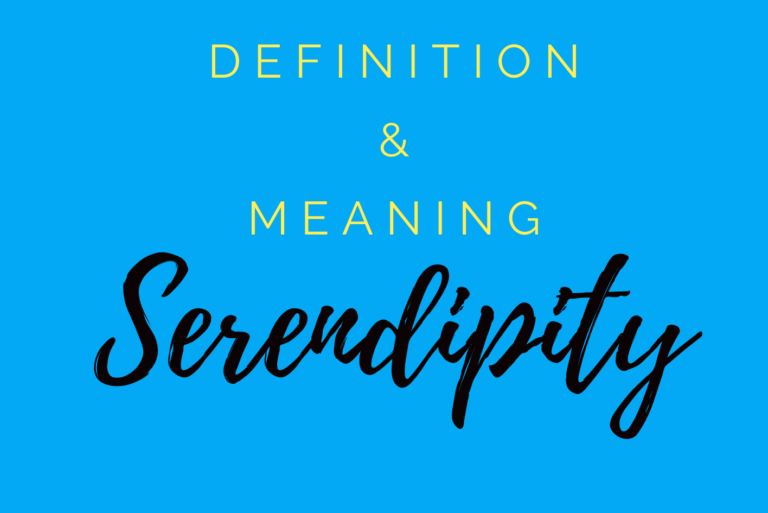“Settle” in as We Explore the Countless Ways to Use this Multifaceted Word!
Welcome to our deep dive into the word settle. You will be surprised to find out just how much this one little word can do and the meanings it can take on. From a teacher telling a classroom of rowdy children to settle down in an attempt to quiet them, to a newlywed couple finally settling in and finding a sense of comfort in the new house they recently moved into, settle is truly an amazing and highly useful word. Together, we will explore all its variations, including numerous phrasal verbs, each with their unique definition. Settle in everyone, and let’s begin!
See also: Words to Use Instead of “Very”
Definition of Settle
Since this word’s meaning changes depending on context quite frequently, let’s first take a look at the most common definitions:
- Decide or agree on
- Pay a debt or a bill
- Solve a problem
- End a legal dispute by mutual agreement
- Begin to live in a specific place permanently
- Weather (calm down or accumulate on the ground)
In essence, settling has two basic meanings – to finalize matters and to get comfortable. In definitions number 1 through 4, we can see the common theme of resolving issues and completing tasks. For example, let’s say a family has been having issues with their loud next-door neighbor playing music late at night. Soon after, they agreed to meet up and have a long discussion to resolve this problem. As a result, they decided to implement a noise curfew that set the latest reasonable time for loud music to be played. In this example, we can say that they have settled the issue. In addition, we can use settle to talk about paying. However, this tends to be used in more formal settings, such as business transactions, debt repayments, insurance company payouts, and final payments of a large bill (e.g., at the end of a hotel stay).
On the other hand, definition number 5 talks about a sense of comfort and finding a place to call home. This can be used to refer to someone moving from the big city to settle in the countryside or even in a historical context when talking about how early civilizations moved around the globe.
In addition, settle is frequently used in regards to weather in a couple of different ways. When talking about stormy weather, the word settle would mean that the storm is calming and losing intensity. However, when referring to snow, it would mean the snow is collecting on the ground. Lastly, regarding dust, it would mean the dust particles are falling to the ground and no longer floating in the air.
See also: 18 Words That English Learners Misuse
Etymology
To understand why ‘settle’ can be used in such a wide range of contexts today, we have to consider its rich history and origins. The modern word “settle”’ interestingly came about from a merger of two Middle English words: “setlen” and “sahtlen.” The former, “setlen,” was derived from Old English “setlan,” meaning seat or rest. It was commonly used when talking about seating arrangements or the act of physically sitting down. The latter, “sahtlen,” evolved from Old English “saht” and “sahtlian.” This was used to refer to an agreement, the end of a fight, or peace. The combination of these two Middle English words led to “settle,” as we know it today. Its long, constantly changing history is the reason for its complexity and multiple definitions in our modern times.
Different Forms and Phrasal Verbs
The most interesting thing about the word settle is how versatile it is. By adding prepositions, we can form new phrasal verbs. Here are some of the most common ones:
Settle down
To settle down is to calm down. This can mean literally calming or quieting down after excitement or finding stability in the bigger picture (e.g., getting married and buying a house).
Settle in
To settle in to get comfortable. Similarly, as the example above, it has a literal meaning of getting comfortable in the chair you are sitting in. In addition, it means getting comfortable at a new place or a new job. A common question we ask someone who recently moved is: “How are you settling in?”.
Settle for
To settle for is to accept a less desirable option; it is going for your Plan B. If someone wants to buy a luxury handbag but cannot afford to pay the full price, they can settle for buying it second-hand from a thrift store.
Settle on
To settle on is to finally make a decision or a choice after a long discussion. For example, an engaged couple spent weeks going back and forth on what would be the best date for their wedding. They eventually settled on the 3rd of March, as it was their anniversary.
Settle up
Settling up is the less formal version of settling (as in paying) that was previously mentioned. To settle up is simply to pay what is owed, for example, the bill at a restaurant. It can be used between friends and family and in casual business situations (such as an after-work dinner with coworkers).
Some other forms of and idioms containing settle include:
Settlement (noun)
Settlement has two meanings. First of all, it is a place where a group of people (called settlers) have established a community. Secondly, it is the noun for the action of settling in the context of legal and business matters.
Unsettling (adjective)
If something is described as unsettling, it makes you mentally uncomfortable. It is disturbing and brings you anxiety. A psychological horror movie, a storm warning, noises in the dark – these are all unsettling.
Wait for the dust to settle (idiom)
This idiom means that it is best to wait for a high-tension situation to calm down before taking any further action. For example, right after a big fight with your friend, emotions are high, and trying to talk about the issue again might only make it worse. You should wait for the dust to settle before trying to reach out.
Settle the score (idiom)
Here, we have an interesting idiom that has changed meaning over time. In its original context, it meant paying off your debts. Over time, this idiom has developed to have a different meaning. Nowadays, it means getting revenge to bring a sense of justice. For example, if your best friend had previously forgotten your birthday and you decided not to wish them a Happy Birthday on theirs to make yourself feel better, that would be considered settling the score.
Well, that settles it, then! (idiom)
This expression is often used to mark the end of a long discussion, followed by stating the resolution out loud once again. For example, if you and your friends have spent an hour discussing what movie to watch tonight and finally settled on “Superman,” one of you could end the discussion by saying, “Well, that settles it, then! We’ll watch Superman.”.
See also: 70+ Spanish Words We Use in English
Synonyms
Resolve: Similarly to settle, resolve means finding the answer to a problem. However, the nuance of resolve is a little less decisive than settling.
Agree on: For two people to agree on something, they must have the same opinion or point of view. On the other hand, two people can settle an issue without actually agreeing with each other.
Decide on: Deciding on and settling on are very similar. The one small difference is that settling implies a longer consideration of many options before the final choice.
Sort out: Sort out also means to find the solution to a problem, with the added nuance of careful organizing or arranging.
Examples
Below are example sentences featuring some of the forms of “settle” previously mentioned:
“My father settled the bill for the minibar at the hotel reception during check-out.”
“After spending his whole life living in New York City, Ross decided to settle down in the countryside after his retirement.”
“The creepy soundtrack of this horror film makes it even more unsettling.”
“Melanie decided to settle out of court with the man who crashed his car into her mailbox; she wanted to avoid a long legal battle.”
“The neighboring countries failed to settle their political border dispute, further causing problems in the region.”
Well, that settles it, then – you are now a master of the word settle and all its nuances. There will surely be a right time and place to practice the words and phrases you have learned today since this powerful word covers so many of life’s bases. We hope you are now ready to give these versatile expressions a try!






